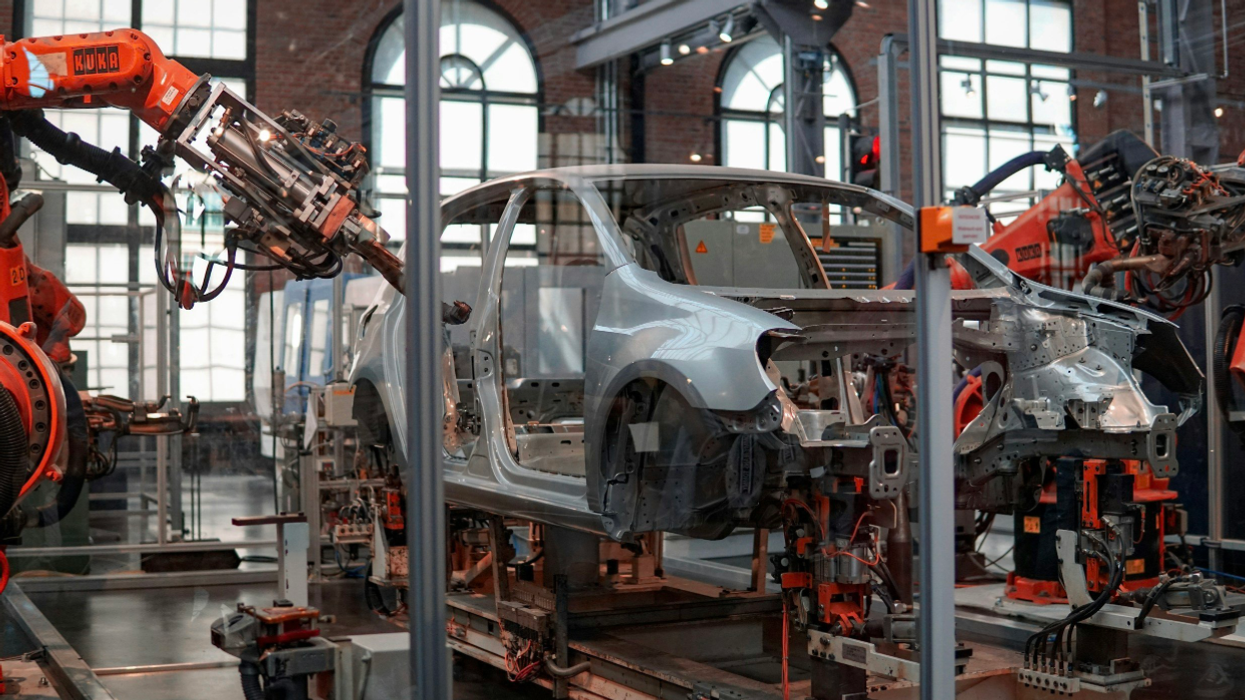President Donald Trump made economic waves earlier this year when he announced a 25% tariff on imported automobiles and parts with the stated goal of revitalizing U.S. auto manufacturing. Yet as of summer 2025, the majority (92%) of Mexican-made auto parts continue to enter the United States tariff-free.
That’s because of a March 2025 revision that exempts cars and parts manufactured in compliance with the United States-Mexico-Canada Agreement (USMCA) from tariffs.
The auto manufacturing industries of the United States, Canada, and Mexico are deeply intertwined, in part because of trade agreements. USMCA, implemented in 2018, is essentially an updated version of the North American Free Trade Agreement (NAFTA). NAFTA established tariff-free trade among the United States, Canada, and Mexico and led to an increase in manufacturing on the U.S.’s Southern border, with American companies manufacturing goods in Mexico to reduce labor costs. The exemption of Mexico from tariffs is likely to accelerate this trend.
While Mexico and Canada continue to largely dodge the auto parts tariffs, tariffs on imports from other parts of the world are still in effect. Manufacturer Marelli, which made internal electronics for Jeeps and Nissans, filed for bankruptcy this month due to the subsequent financial strain.
Price increases are quantified by inflation metrics like the personal consumption expenditures price index. The PCE price index measures consumer spending on a basket of goods and services, including motor vehicles and parts. The May numbers, released earlier today, show an annual inflation rate of 2.3%.
So far since Trump took office, the PCE has seen monthly changes of +0.4%, 0%, +0.1% and +0.1% in February, March, April and May. The “motor vehicles and parts” component of the PCE has seen changes of +0.1%, -0.4%, 0%, and -0.1% over those same months, showing that the amount that Americans spend on cars and parts has not yet increased.
That component of the PCE did spike notably during the COVID-19 pandemic due to supply chain issues, resulting in slow-downs in car-buying at that time.
Changes in the PCE reflect shifts in price as well as shifts in consumer behavior. “It doesn't just track the cost of groceries per se,” explained Hoffman. “It tracks the cost of the groceries in my basket that I've chosen to purchase.”
In recent months, demand for cars has decreased as tariff news spooks potential buyers. As a result, car prices have remained relatively flat. But industry experts predict that prices will rise in coming months, even on vehicles that are manufactured in North America and thus exempt from tariffs.
“What we’ve seen historically is that if you put a tariff on an import, which drives up the cost, domestic firms are all too happy to raise their prices even though they're not paying tariffs to match the price of that import,” said Dennis Hoffman, professor of economics at the W. Carey School of Business at Arizona State University.
In the long run, Hoffman said, increases in the price of goods almost always lead to increases in the PCE price index.
Higher prices don’t necessarily spell the beginning of an economic downturn – if they’re matched by a corresponding rise in incomes. But if they aren't, they can portend further economic trouble.
“If goods that I need to purchase on a monthly budget go up in price, that leaves me with less income for discretionary spending, and that can be recessionary,” Hoffman said.
Meanwhile, the President is mulling further action, saying he might increase auto tariffs in the “not-so-distant future.”
Dozens of Questions: How Are Trump’s Auto Parts Tariffs Affecting the Broader Economy? was originally published by the APM Research Lab.
Maya Chari is the APM Research Lab’s data journalism fellow.




















Trump & Hegseth gave Mark Kelly a huge 2028 gift